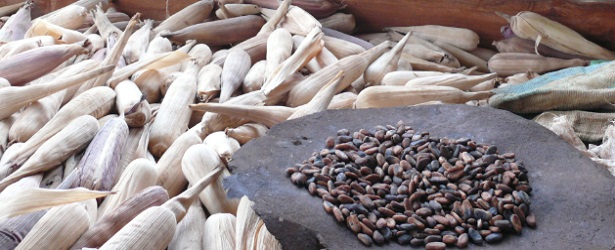Analysis of climate change impacts on coffee, cocoa, and basic grains value chains in Northern Honduras


Summary
In 2011, the Government of Honduras asked IFAD (www.ifad.org) to prepare a project proposal aimed at increasing the climate resilience of agricultural production chains, protecting smallholder farmers and their crops from the impacts of climate variability and future climate change. This proposal would complement the “Competitiveness and Sustainable Rural Development Project in the Northern Zone” (Northern Horizons), a pro-poor value chain development investment co-funded by IFAD.
The project aimed to reduce the effects of climate change on smallholder farming system productivity and profitability through:
(a) the promotion of adaptation techniques and introduction of technologies that can make agricultural value chains more resilient
(b) awareness raising and reinforcement of capacities for better management of climate change risks.
Climate model forecasts are essential elements of any adaptation strategy because they make it possible to plan better through the anticipation of future impacts. However, efforts are currently scattered, and few, if any, institutions are systematically applying climate modelling to agricultural scenarios. For most regions of the world the impact of an increasingly variable climate and more frequent extreme weather events on agribusiness and production chains is unknown, making the recommendation of viable, practical adaptation paths even harder.
Fundación para la Investigación del Clima (Climate Research Foundation, FIC) and Instituto de Estudios del Hambre (Institute for Hunger Studies, IEH) have been working since 2010 on the application of climate simulation to enhance food security in rural areas in Central America and Central Asian countries.
This study applies an innovative methodology (FIC/IEH Methodology) designed to analyse climate change impacts on productive systems on the areas prioritized by the Northern Horizons project in order to make recommendations for strengthening the resiliencie of vulnerable populations. It focuses on coffee, cocoa, maize and bean value chains in municipalities with high concentrations of rural poverty in the departments of Atlántida, Cortés and Santa Bárbara.
Methodology
The methodology sets out and applies a range of minimum requirements for the reliable generation of climate change scenarios through the use of the most advanced climate models and historical series of daily data. It also quantifies uncertainties, verifies and validates the methods and applies regionalization in order to downscale the projected changes to a local scale. By mapping the value chains and consulting national experts, this methodology identifies the critical elements most vulnerable to climate change, formulates and verifies indicators to predict how future climate will affect the value chains and analyses its impact, proposing adaptation measures.
The methodological process applied is based on the three stages necessary to address climate change adaptation:
1. Description of potential future climate conditions;2. Evaluation of how this future climate will impact the value chains covered by the study;3. Recommendation of what to do to minimize the adverse impacts identified, including effective measures of adaptation to climate variability.
These stages are developed on a local scale—that is, in the three departments included in the project area: Santa Bárbara, Cortés and Atlántida—because many of the adaptation interventions are defined at this level.
Recommendations
Recommendations for the coffee crop include improving the existing varieties and crop management, supporting investment in infrastructure such as irrigation systems or drying facilities, encouraging more efficient associations, and doing research on the relationships between crop and climate.
In the case of the cocoa crop, recommendations include expansion of the cultivated area and replacement of old plants by better adapted varieties, improved cultural practices in order to reduce disease impact and enhance quality, diversification of cocoa grower income sources with timber species that also provide protection from higher temperatures, and support for the small-scale producer to gradually incorporate more addedvalue activities to the chain. The latter requires more training, technical support and improved associations.
In general terms, more investment in meteorological stations is suggested in order to ensure that enough meteorological data are available.
Conclusions
In the case of the coffee crop, the expected impacts are negative due to the increase in temperatures that will provoke changes in the crop cycle, with consequences ranging from higher vulnerability to some diseases to more complicated harvesting and post-harvest tasks. On the other hand, higher temperatures projected by the scenarios will favour cocoa growing, although there will also be negative impacts associated with better conditions for monilia disease development.
In the maize crop, in general terms, the future climate will be beneficial to most of the studied areas, though in some areas higher rainfall will complicate certain farming phases, including the first stages of development and harvesting, which will increase vulnerability to diseases.
Something similar will happen with beans: increased rainfall will make sowing, flowering and grain filling more difficult.
(0) Comments
There is no content